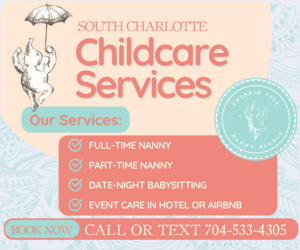This article was previously published on Atrium Health's Daily Dose.
New kids, new activities, new place. It's a lot. Here's how you can help your child enjoy their camp experience.
For some kids, summer camp is a thrilling idea. For others, it's nerve wracking. And for many, it's a little of both. The weeks leading to summer camp can bring excitement and jitters, depending on the day. It's understandable: being around new kids, trying new activities and being in a new place. Some parents and caretakers may feel stress over the idea, too.
Trey Williams, MD, a pediatrician at Atrium Health Levine Children's Midtown Pediatrics, offers advice to help parents and caregivers empower their kids to feel ready and excited about camp – and to know when normal jitters become anxiety.
Is Your Child Ready for Camp?
Before your child is ready for summer camp, they should have some key skills, Dr. Williams says. For one, they should be potty-trained and able to handle basic personal hygiene tasks, like brushing their teeth and cleaning themselves. They should also have communication skills, like relaying a parent's name, phone number and address, which is especially important for overnight camp. The child should also have experience being away from home and navigating new situations.
"Does your child have a good track record with sleepovers and staying away from home overnight?" asks Dr. Williams. "Are they able to handle a babysitter putting them to bed?"
But, Dr. Williams said, this isn't just about whether the child's ready. "First off, ask yourself: Are you ready for your child to go?" he asks.
What Steps Can I Take to Prepare for Camp?
Consider key questions to find the camp that's best suited for your child, such as:
- What does a typical day at this camp look like?
- What are the camp's COVID-19 policies? Are masks required?
- Will your child know friends attending that camp?
- What medical resources will be available?
- What is the camp's ratio of staff to campers? (You'll want this to be as good, or better, than schools.)
- What plans and protocols does the camp have in case of emergency?
When you find the right camp, begin a packing list. Remember to include items to protect your child's health, including:
- Sun protection, including sunscreen and sunglasses. Consider zinc or titanium dioxide sunscreen for sensitive areas like cheeks, ears, nose and shoulders.
- Medications
- Bug repellant
- Water bottle
For overnight camp, consider items that can offer comfort or entertainment while they're away:
- A favorite stuffed animal or toy
- Pillow
- Magazines, books or comics
- Small games
- A journal
What If My Child Says They're Nervous About Camp?
If a child is nervous before camp, remind them that those feelings are normal and valid. Think of previous stressful transitions that the child maneuvered successfully – perhaps a first day of school – and talk about what made that transition go well. One strategy is to initiate positive conversations about camp. Talk about the fun experiences they'll have and the new friends they'll meet. Don't assume that your child is anxious, but be open to learning about their feelings and helping them envision what camp will be like.
If your child feels nervous, remind them that coping strategies can help them when something feels scary. A few ideas for coping strategies:
- Deep belly breathing: Take big, deep breaths through the nose and then exhale out of the mouth to calm the nervous system.
- Ground yourself in your senses: Notice what you see, smell, feel, taste and hear.
- Take a walk. Fresh air and exercise can be relaxing.
- Listen to music: No matter the child's age, music can create a calming effect.
The camp counselors are your allies. If your child is nervous or anxious, let the counselors know. They have different ways to ease the concerns of children, whether it's pairing them with a buddy who's enjoying camp or spending some extra one-on-one time with them.
Parents and caregivers should be aware of their own stress and anxiety levels about the camp experience, too. If they're feeling worried about kids going to camp, kids will notice and may take on that stress themselves. Many of these tips can help anxious parents, too. By speaking positively about the child's camp experience and validating their emotions, parents may feel less worried about the transition themselves.
A healthy level of nervousness is normal and expected when your child ventures outside their comfort zone. There's so much to gain – like independence and new friends and experiences. However, if the discussion of these benefits doesn't lessen your child's nerves, don't push them to attend camp if they're truly not ready.
Sometimes, however, nervousness grows into anxiety. Anxious children may experience somatic symptoms, such as headaches or stomachaches that aren't readily explained. Kids may feel restless or pace. Children of all ages may reveal anxiety by becoming unusually short-tempered or defiant. Notice how severe these changes are and how long they last. If the symptoms don't subside after a week, it may be more serious than typical nervousness. If you feel that your child needs help coping with stress and anxiety, talk to your pediatrician about the child's symptoms and to learn about available resources.
Read more about our child and adolescent behavioral health care offerings here.























